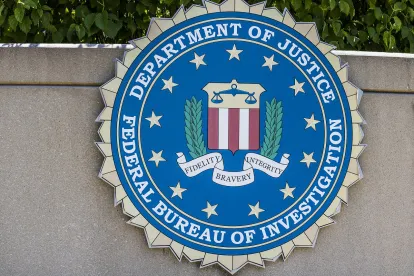At the American Bar Association’s 38th Annual National Institute on White Collar Crime, Assistant Attorney General (“AAG”) Kenneth A. Polite, Jr. announced the Department of Justice’s (“DOJ”) Revised Memorandum on Selection of Monitors in Criminal Division Matters (the “Revised Policy”), the culmination of a two-year process to revise and update policies regarding the selection, appointment process, and oversight of independent corporate monitors. Notably, DOJ has adopted a more neutral stance on the decision of whether to appoint a monitor. As Deputy Attorney General (“DAG”) Lisa Monaco explained in 2021, “[t]o the extent that prior Justice Department guidance suggested that monitorships are disfavored or are the exception, I am rescinding that guidance.” DOJ’s guidance now requires prosecutors to consider ten factors when deciding whether to appoint a monitor, but the neutral presumption may cause the number of monitorships to increase in the coming years.
How We Got Here
In her October 2021 memo, DAG Monaco announced that DOJ would be updating its corporate criminal enforcement policies and creating the Corporate Crime Advisory Group (“CCAG”) to consider and, where appropriate, provide recommendations on various aspects of DOJ’s prosecution of business entities. This memo also contained initial revisions to DOJ’s monitorship guidance. This guidance expressly superseded Part A (“Principles for Determining Whether a Monitor is Needed in Individual Cases”) of DOJ’s 2018 guidance on monitorships, which approached monitors with skepticism, commenting that “the imposition of a monitor will not be necessary in many corporate criminal resolutions.” In contrast, the new guidance underscored DOJ’s “commit[ment] to imposing monitors where appropriate in corporate criminal matters.” As subsequent guidance has further detailed, the appropriateness largely turns on the sufficiency of the offending organization’s compliance program, including whether it has been tested, is effective, has adequate resources, and has been fully implemented at the time of the resolution.
In September 2022, after conferring with CCAG, DAG Monaco issued Further Revisions to Corporate Criminal Enforcement Policies (“Further Revisions”). This new guidance addressed the factors to consider when evaluating whether a monitor is appropriate, the selection of monitors, and the continued review of monitors.
On January 17, 2023, DOJ adopted a policy to reject requiring a monitor for companies facing a criminal resolution that have voluntarily self-disclosed criminal conduct, fully cooperated with the government’s investigation, timely and appropriately remediated the misconduct, and implemented and tested an effective compliance program. On February 22, 2023, the U.S. Attorneys’ Offices adopted a substantively identical policy regarding monitorships.
Now, DOJ has issued the Revised Policy, which provides a comprehensive statement of its position on monitorships.
Overview of the New Policies
As an initial matter, the Revised Policy reiterates DOJ’s neutral presumption with respect to the decision of whether to appoint a monitor. Prosecutors must consider ten non-exhaustive factors when making this decision. Those factors include whether the company voluntarily self-disclosed the misconduct, the state of the company’s compliance program, the extent and pervasiveness of criminal misconduct, the company’s response to learning of the misconduct, the company’s risk profile at the time of the resolution, and whether there may be any redundancies in imposing a monitor (e.g., the existence of industry regulators or a pre-existing monitor from a separate matter).
With respect to selecting monitors, the Revised Policy clarified that “the term monitor signifies both the leader of the monitorship team and the entire team.” The Revised Policy goes on to provide detailed steps for the selection of a monitor, including the nomination process and a review of the candidates by the prosecutors handling the matter, their supervisors, the Standing Committee, and ultimately, the Assistant Attorney General, followed by approval from the Office of the Deputy Attorney General. Critically, the selection of a monitor “should be made in keeping with the Department’s commitment to diversity, equity, and inclusion, and without unlawful discrimination against any person or class of persons.”
Finally, the Revised Policy extended the cooling off period—the time during which a company “will not employ or be affiliated with the monitor, the monitor’s firm, or any of the personnel or entities assisting in the monitorship”—to not less than three years. Previously, the term was two years. The cooling off period is critical to mitigating potential conflicts of interest on the part of the monitor as well as perceptions of impropriety.
Missing from the Revised Policy was a comprehensive statement on DOJ’s oversight of monitors. The Revised Policy instead relies on the previously adopted Further Revisions’ statements in this regard.
Conclusion
DOJ’s extensive efforts over the last two years to revise and clarify its position on monitorships reflects their importance in DOJ’s framework for fighting corporate crime. Indeed, as discussed, we may see the restatement of DOJ’s neutral presumption regarding the imposition of monitors result in their overall increase. Much of the framework for this decision rests on DOJ’s assessment of the company’s compliance program. Companies wishing to avoid the burdens of a monitor should accordingly invest the time, resources, and energy necessary to establishing a robust compliance program.







 />i
/>i

